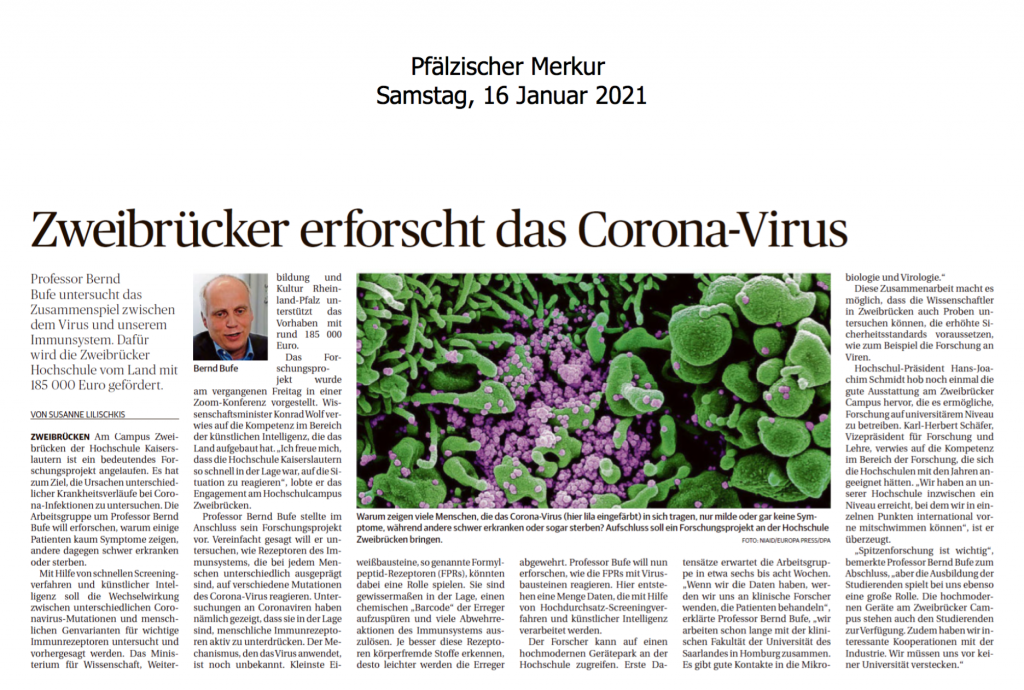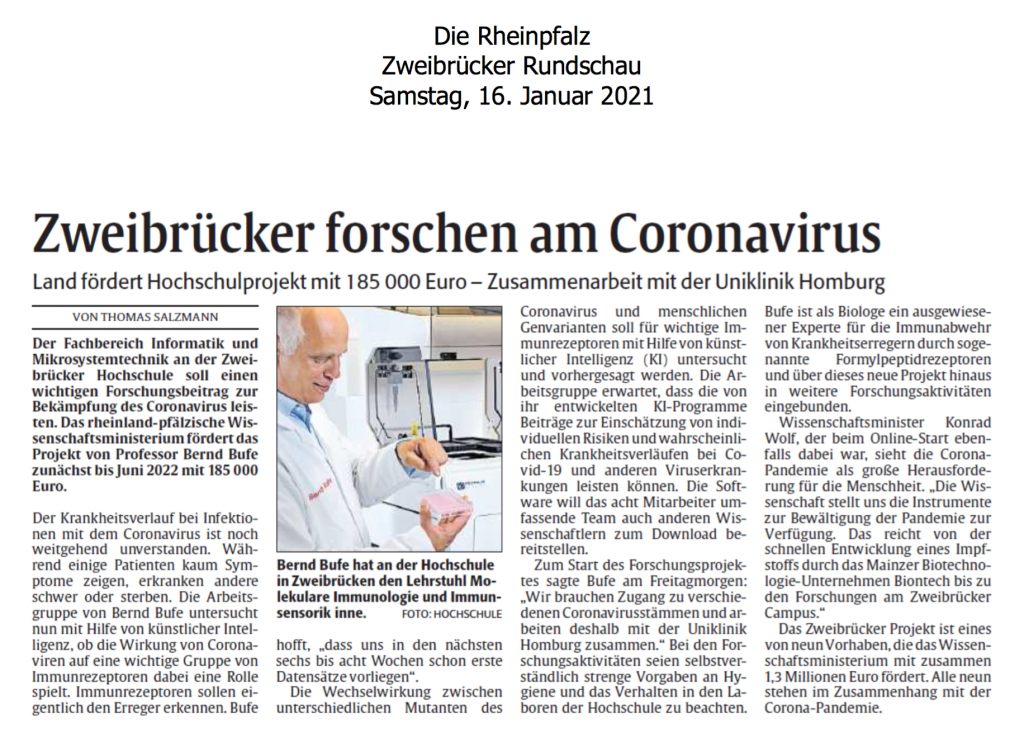The course of the disease in coronavirus infections is still largely unknown. While some patients show hardly any symptoms, others become seriously ill or die. Prof. Dr. Bernd Bufe’s research group at Kaiserslautern University of Applied Sciences wants to use artificial intelligence to investigate whether the effect of coronaviruses on an important group of immune receptors plays a role in this. Rapid screening methods and artificial intelligence (AI) will be used to investigate and predict the interaction between different coronavirus mutants and human gene variants for important immune receptors.
Formyl peptide receptors are a small family of molecules that influence the immune system in many parts of the body. They play an important role in the immune defense against invading pathogens. Put simply, formyl peptide receptors recognize foreign patterns in protein molecules of various pathogens, such as bacteria or viruses. To a certain extent, they are able to detect a chemical “barcode” of the pathogens and trigger many defense reactions of the immune system. The better these receptors recognize foreign substances, the easier it is to fight off the pathogens. Research on coronaviruses has shown that they are able to suppress the activation of formyl peptide receptors. The significance of this mechanism for the course of SARS-CoV-2 infections is still unknown.
Prof. Dr. Bufe’s research group will investigate the effect of SARS-CoV-2 on formyl peptide receptors in more detail in a research project supported by the Rhineland-Palatinate Ministry of Science, Further Education and Culture with around 185,000 euros. The first step is to determine which protein fragments of the virus interact most strongly with which receptors. The research group will then investigate how gene variants of the formyl peptide receptors react to different mutants of the virus and how this affects the course of the disease. As a large number of variations in virus-receptor interaction ultimately have to be analyzed for this question, the working group is relying on a state-of-the-art combination of artificial intelligence (AI) and automated laboratory tests. The aim is to develop AI-based algorithms that are able to quickly and easily predict the effect of differently mutated coronaviruses on different receptor gene variants. In the further course of the study, the findings will also be transferred to other virus types such as HIV or Ebola, which also interact with formyl peptide receptors. The research group expects that the AI programs it has developed, in addition to predicting dose-response relationships between the interaction partners, may also be able to contribute to the assessment of individual risks and probable disease progression in Covid-19 and other important viral diseases. These software tools will therefore also be made available for other scientists to download.

